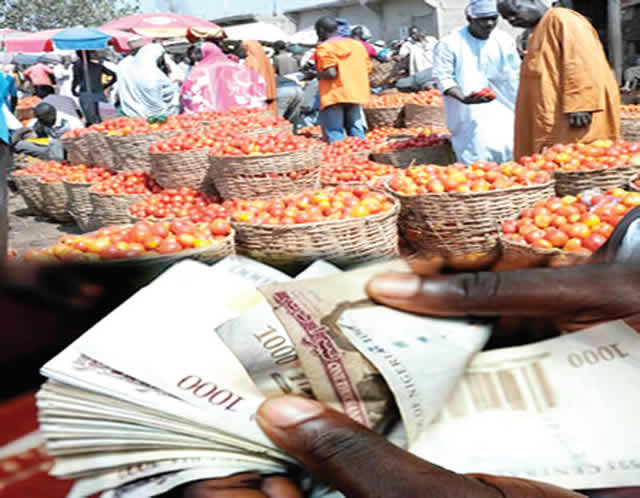
Economic activities contracted in November as the Purchasing Managers’ Index fell below 50.0, according to reports obtained from the Central Bank of Nigeria.
The CBN stated in reports of members of the Monetary Policy Committee that there was need to implement initiatives to strengthen the business environment.
The Deputy Governor, Financial System Stability Directorate, CBN, Aishah Ahmad, said the bank staff projections indicated that the economy was expected to remain at a slow pace, on a positive growth trajectory, given sustained interventions in critical growth enhancing sectors and steady rebound in economic activities.
She said, “This projection is supported by estimates from the composite Purchasing Managers’ Index which expanded to 51.5 index points in October 2022 from 49.5 points in the previous month.
“The PMI however, declined to 49.0 index points in November 2022, signifying marginal contraction in business activities, a development that highlights the need to strengthen output expansion and forestall reversal of gains recorded so far.
“Focused implementation of initiatives that seek to strengthen the business environment, improve infrastructure and boost domestic production, such as the National Development Plan 2021-2025, the Economic Sustainability Plan and ongoing targeted interventions by the monetary authority are useful in that regard.”
A member of the MPC, Kingsley Obiora, said domestic economic recovery continued to be fraughted by persistent inflationary pressures.
He said, “Amid these soaring inflationary pressures, the monthly composite Purchasing Manager Index declined to 49.0 index points in November 2022 from 51.5 points in October 2022, signifying a contraction in the overall economic activity.
“Also, the economic recovery is still fragile, as it is projected to moderate to 3.2 per cent in 2022, partly driven by the continued oil sector contraction, thereby widening the fiscal deficit amid the rising cost of borrowing.”
According to him, headline, food, and core inflation (year-on-year) continued to rise, driven by persisting high energy prices, exchange rate depreciation, increase in transport and logistics cost, as well as lingering structural issues, such as flooding, insecurity, inequality, and poverty.
Although inflation on a month-on-month basis had been declining, he said an indication of the impact of the bank’s aggressive increase in interest rates, on a year-on-year basis, it had continued to rise persistently.
He said that headline rose to 21.09 per cent in October from 20.77 per cent in September 2022, the 19th consecutive month of persistent increase since February 2022, driven by rising food and core components.
Food inflation increased by 23.72 per cent in October from 23.34 per cent in September 2022, he said.
Obiora noted the continued rise in food inflation was driven by farm produce, transportation costs, flooding, the rising cost of fertilizer, and security challenges in food-producing areas.
Core inflation also increased to 17.76 per cent in October from 17.60 per cent in September 2022, driven by the rise in the prices of processed foods, housing, water, electricity, gas and other fuel, clothing, footwear, and transport.
PMI readings above 50.0 signal an improvement in business conditions on the previous month, while readings below 50.0 show a deterioration.














